This blog was written for the RSA Blog Student Summer Series that will highlight graduate student success in regional studies across the globe throughout the summer.
The impacts of climate change in the UK are becoming increasingly tangible, while the farming sector’s role in mitigating and adapting to these changes is a hotly debated topic. Cows and sheep produce methane via their digestive processes, and the UK’s Climate Change Committee has called for reduced meat consumption and production to help reach Net Zero. Yet, livestock farming is integral to UK landscapes and rural communities. Farmers play a key role in managing stored carbon while adapting to extreme weather conditions. Amid online polarisation and frequent media controversies, livestock farmers describe feeling villainised in climate debates.
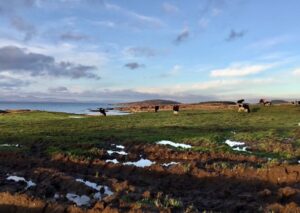
Meanwhile, researchers are exploring the technical and social aspects of reducing livestock emissions and seeking a better understanding of this complex issue. There is growing awareness of the cultural divide between farmers and non-farmers, which is often exacerbated in climate debates. As two non-farmer PhD researchers, we wanted to share what we’ve learned from engaging livestock farmers to participate in climate change research. We hope these Dos and Don’ts can help others avoid some common pitfalls, and improve the research experience for everyone involved.
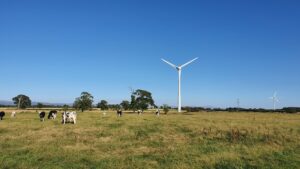
Don’ts
-
Don’t assume all farmers are the same.
The farming community may have some key shared values and experiences, but there is wide diversity in terms of management practices, engagement with new technology, business structure, and views on environmental issues.
-
Don’t assume participants’ knowledge or education level.
We’ve met farmers who are lecturers, journalists and government advisors. Meanwhile, some farmers faced challenges in the school system. Avoid academic jargon and be conscious of different comfort levels around public speaking, such as in focus groups. Furthermore, be aware that the farming community has its own technical jargon, so be prepared to ask questions.
-
Don’t assume climate change is an uncontroversial topic, especially in farmer-only (digital) spaces.
Farmers experience a lot of negative messaging around climate change, which they often describe as “relentless” and find harmful to their mental health. Livestock farming is a tough job at the best of times, and it’s a job that is often closely tied to one’s identity. This all means that poorly thought-out recruitment calls may be experienced as yet another attack, risking harm and provoking defensiveness. As for all groups, online anonymity can lead to unkind behaviour and even sexism, which we both experienced during our recruitment. Below are some strategies to reduce this risk.
-
Don’t frame the research in a stigmatising way.
Approach with sensitivity, and avoid pitching your research in a way that implies blame. Acknowledge both positive contributions and challenges in the farming industry.
-
Don’t limit your recruitment efforts to one platform.
If you only recruit by posting on Twitter, you’ll miss out on engaging with the many folks who aren’t on social media.
-
Don’t overburden participants with lengthy surveys.
Check whether similar analyses have been conducted in previous studies to avoid duplication. Online forums for farming communities are inundated with survey requests from researchers, which may lead to research fatigue and create tensions.
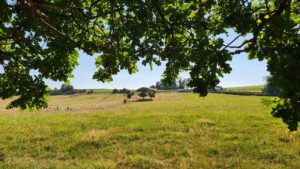
Do’s
-
Do consume farming media to get to grips with jargon and norms.
Farmers Weekly and Farmers Guardian both allow a few free articles per month, and subscription to either is relatively affordable. Farming Today on Radio 4 is great for understanding current affairs, and is available in podcast format on most platforms. Farmerama is more focused on the agroecology community. Following farmers and other industry stakeholders on social media will also help you keep up to date.
-
Do use a wide range of platforms and networks to reach potential participants.
Old school friend now a farmer? Ring them up. Good at graphics? Create an eye-catching Twitter post and ask people in your network to share it. Live near an auction mart? Ask the organisers if you can hand out flyers (if you’re lucky they might even introduce you to a few people). Attend your local agricultural show and congratulate people on their prize-winning livestock. Get along to Groundswell. Contact local farmer clusters, and ask colleagues with good farmer networks to share your study info. Utilise collectives such as the Nature Friendly Farming Network and Pasture for Life, and attend AHDB events in your area. Try calling people rather than always relying on email- while different people have different preferences, phone calls can be more effective for building rapport. Try online farming forums, but see below.
-
Do exercise caution in farmer-only spaces, especially digital ones.
Debates around climate and livestock can get pretty heated pretty quickly. As mentioned above, we’ve both experienced this in farmer-only digital spaces. Be cautious of implying that livestock cause climate change and demonstrate that you understand the challenges facing the community. Reflect on the power you hold as a researcher, including how gendered dynamics may help or hinder in securing interviews and mediating safety.
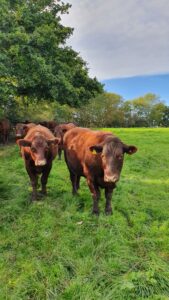
-
Do be mindful of timing on different scales.
Understand the farming calendar and avoid data collection during busy periods like lambing, calving, and harvesting. Shorter interviews are easier to secure, but be prepared for them to extend when participants get talking! Be flexible with interview windows during busy periods.
-
Do be transparent and consider co-design.
Provide consistent communication with clear explanations and context for the research, verbally and in your participant information sheets. Consider undertaking more transdisciplinary research, involving farmers and relevant stakeholders in research design to ensure it is relevant to participants’ needs.
-
Do ask participants for recommendations.
The best way to reach farmers who don’t typically engage with researchers is by building rapport with other farmers. Recommendations from friends have a stronger impact than random internet approaches, especially if they are enthusiastic about your research.
We hope these tips help researchers and participants alike have a positive experience. Thanks for reading, and feel free to get in touch with us if you’d like to discuss any of these issues.
The authors would like to thank our research participants and various colleagues who have offered valuable recruitment advice over the course of our PhD projects. Both researchers are funded by ESRC/UKRI.
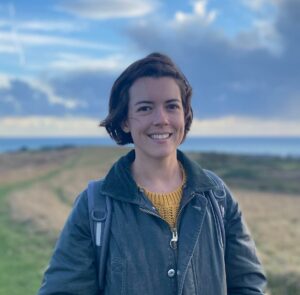
Philippa Simmonds (Twitter, @PippaSim) is a PhD researcher at the Countryside and Community Research Institute, University of Gloucestershire

Kirsty Blair (Twitter, @KirstyBlair10) is a PhD researcher at the Global Academy of Agriculture and Food Systems, University of Edinburgh
Are you currently involved with regional research, policy, and development? The Regional Studies Association is accepting articles for their online blog. For more information, contact the Blog Editor at rsablog@regionalstudies.org.